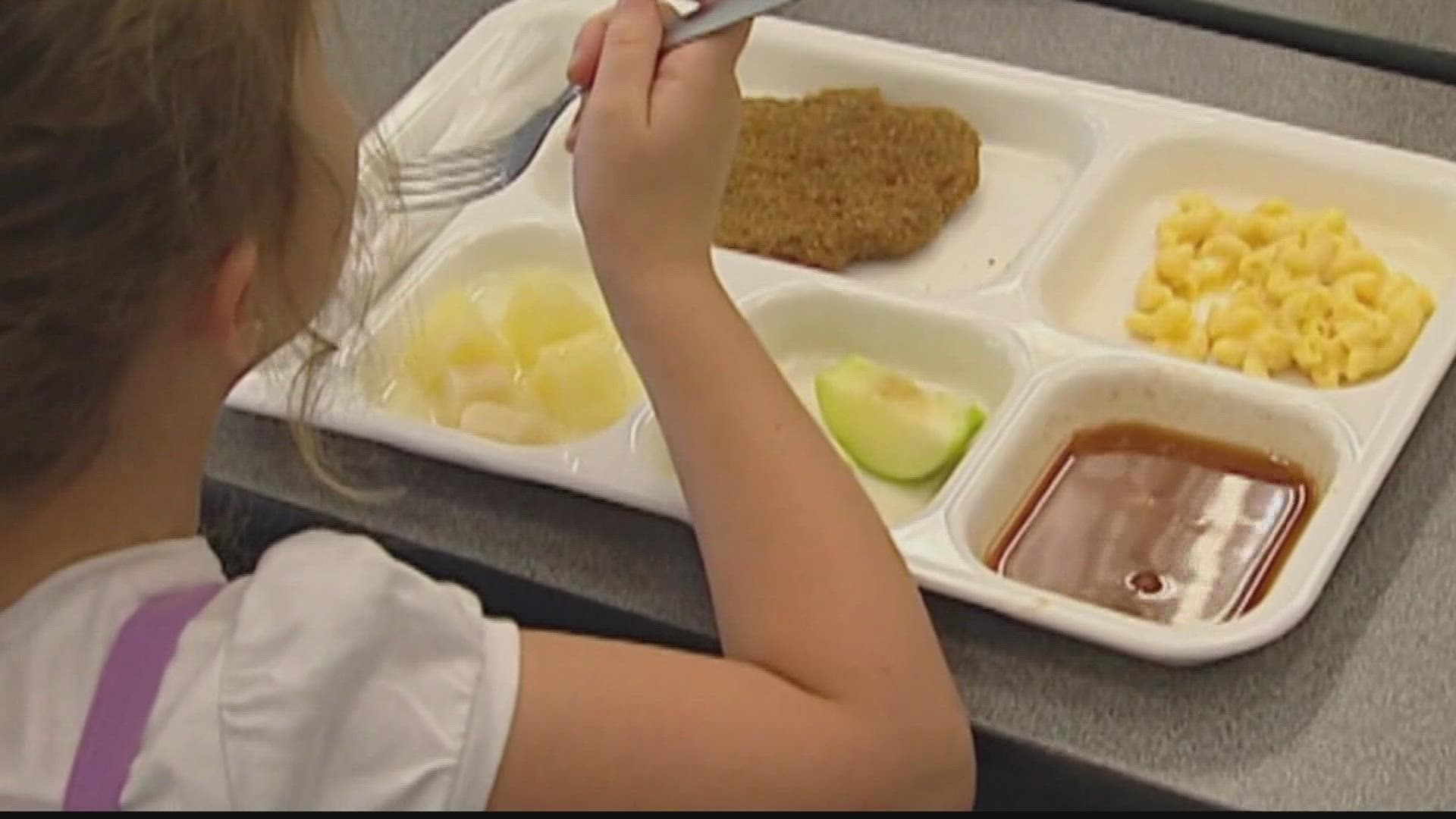ATLANTA — The U.S. Department of Agriculture has announced another boost to its plan to curb childhood hunger over the summer months, offering $100 million in grant funding to help states with implementation.
The new funding, however, does not seem to have changed the minds of state leaders in Georgia who have opted out of the program previously -- with Gov. Brian Kemp's office issuing a statement saying the new money "does not address the core issues" that led to opting out in the first place.
Georgia remains one of 12 states not participating this year in SUN Bucks, the USDA confirmed.
The program, also known as the new Summer Electronic Benefit Transfer for Children (Summer EBT), rolled out nationwide this summer after pilot testing. According to the USDA, the program aims to tackle gaps in current summer feeding programs by providing supplemental benefits in the form of funds pre-loaded onto cards which families can use to buy groceries.
Eligible children, the majority of which are those who qualify for free or reduced lunch, receive $120 in food benefits over the summer ($40 per month). In Georgia, nearly 64% of Georgia public school students qualify for free and reduced lunch, indicating more than 1 million children in the state could have qualified for the additional benefits.
Gov. Kemp's office contends there are "reasonable concerns surrounding the program's lack of nutrition standards and fiscal sustainability" with SUN Bucks, and that there are state programs -- such as the Georgia Department of Education's Seamless Summer Option -- that "provided millions of breakfast and lunch meals to students statewide last year and are tailored to address our state's specific needs by providing necessary nutrition and engagement to families and kids."
When Georgia opted out earlier this month, Democratic Rep. Lucy McBath pushed back on the decision in a letter to the governor. She sharply disagreed that current state services are adequate, saying it is "painfully obvious that the current available options are not meeting the needs of families in Georgia." She also questioned in the letter "if you would consider operating the program next summer."
“Last year, 59 counties in Georgia did not have a Summer Food Service Program feeding site, and some counties currently have no summer feeding sites at all,” Rep. McBath wrote. “Summer EBT can help ease the burden by allowing every family in all 159 counties across our state access to the flexible support when they need it.”
The nonprofit Food Research & Action Center previously reported opting into the Summer EBT program would have resulted in more than $138 million in benefits for Georgia families this summer, a time advocates say can be detrimental for students dependent on school meals.
"Thanks to President Biden's leadership, USDA's SUN programs are already helping children and teens get much-needed nutrition over the summer," said Deputy Secretary Xochitl Torres Small in a press release. "When school is out, the new, permanent SUN Bucks program provides a lifeline to kids, and USDA wants to ensure as many families are able to access the benefits as possible. That's why USDA is providing grant funding to help states improve the technology systems that deliver SUN Bucks to families and ensure kids are fed."
According to the USDA, the SUN programs also offer summer meals at no cost at eligible neighborhood locations (SUN Meals) and meals for pick-up or delivery in some rural communities (SUN Meals To-Go).
States had to indicate their plans to participate in SUN Bucks for 2024 to the USDA by Jan. 1. In Georgia, the state would have had to cover 50% of administrative costs to implement Summer EBT, totalling estimated $4.5 million annually.
On January 8, 11Alive reported on state leaders' decision to opt out of the program. The Governor's Office previously pointed to several existing programs administered by the state that are designed to support students over the summer including both Seamless Summer and Happy Helpings, the latter administered by the Georgia Department of Early Care and Learning.
But this summer, nonprofits continue to report on the spike in need. When asked Thursday whether state leaders might re-consider the decision given the new funding available, Governor Brian Kemp's office issued the full following statement:
"This announcement does nothing to address the core issues that states like Georgia laid out earlier this year. While it is disappointing that the Biden administration would ignore reasonable concerns surrounding the program's lack of nutrition standards and fiscal sustainability, we will continue to promote the many successful programs Georgia already has in place, the most notable being GaDOE's Seamless Summer Option, which alone provided millions of breakfast and lunch meals to students statewide last year and are tailored to address our state's specific needs by providing necessary nutrition and engagement to families and kids." - Garrison Douglas, Kemp Spokesperson
The Seamless Summer Option and Happy Helpings are also federally funded summer programs.

